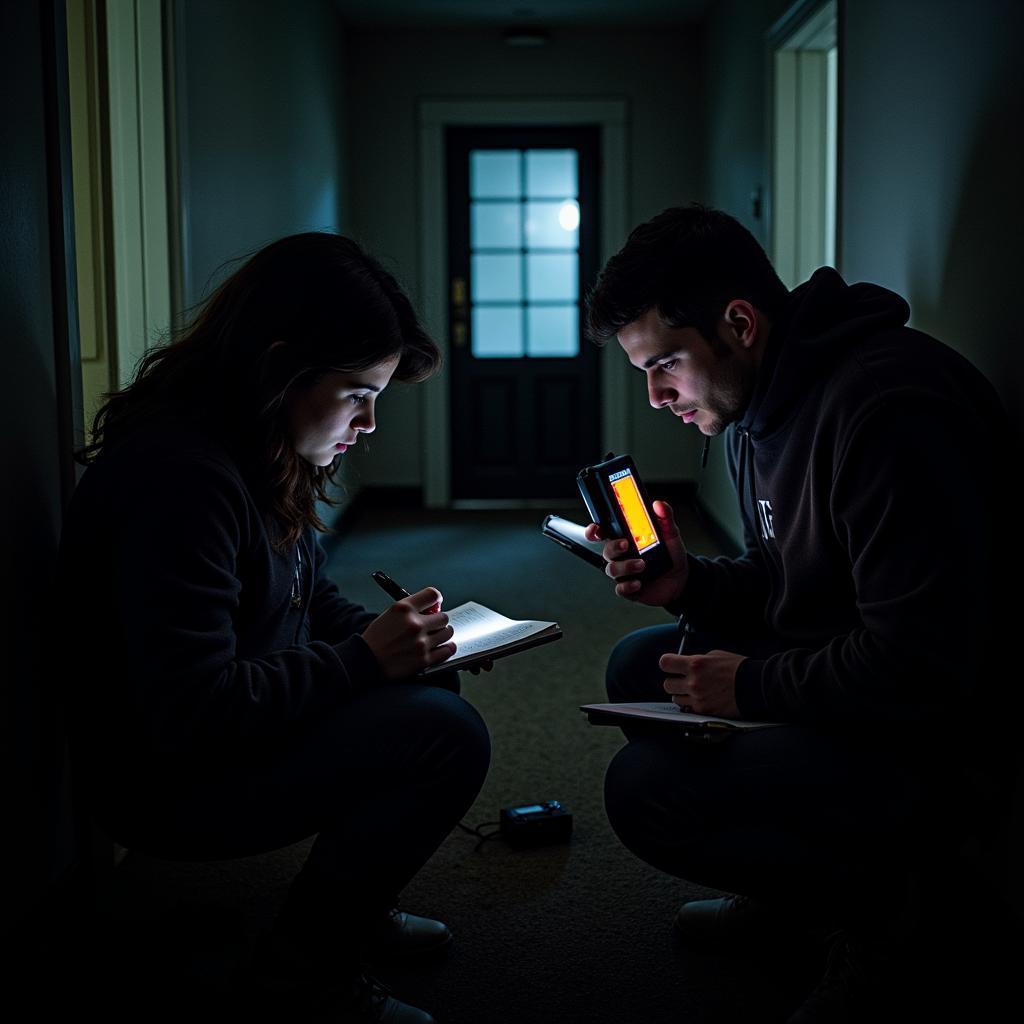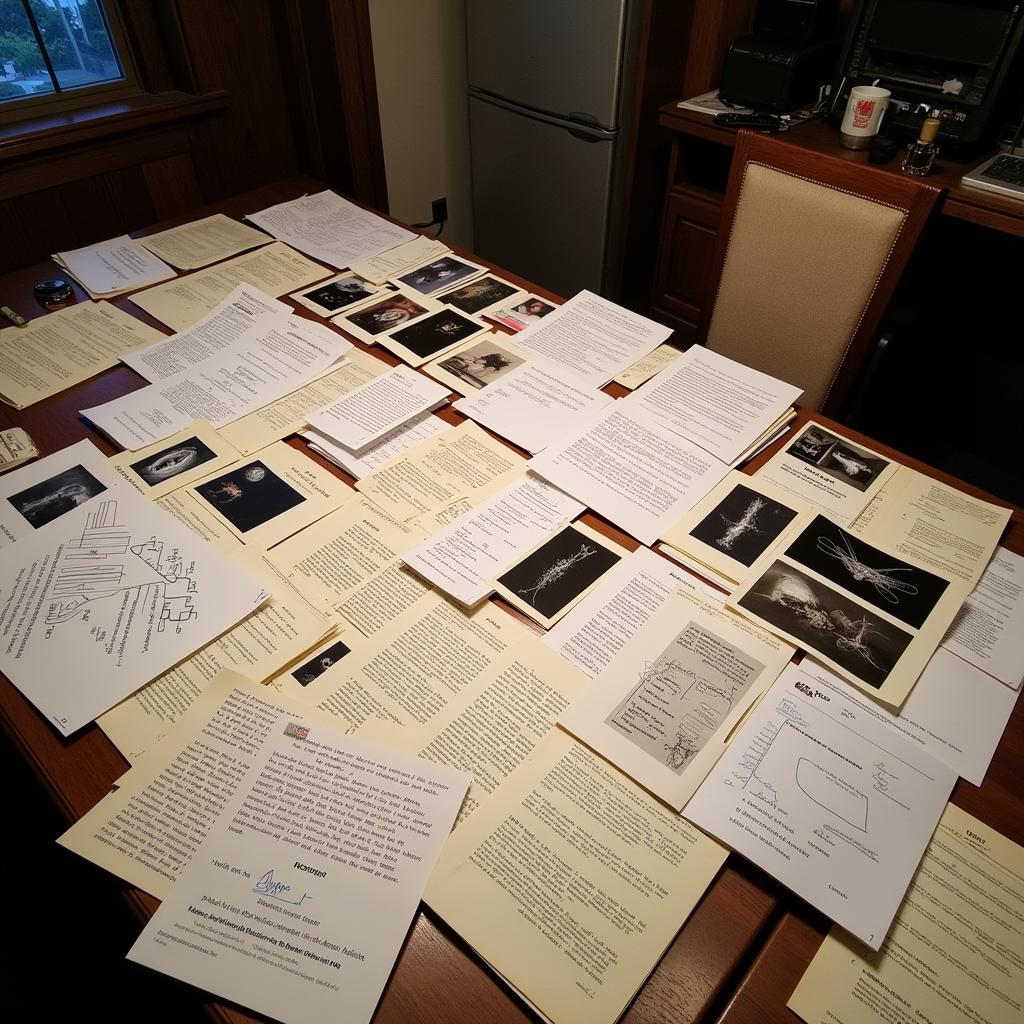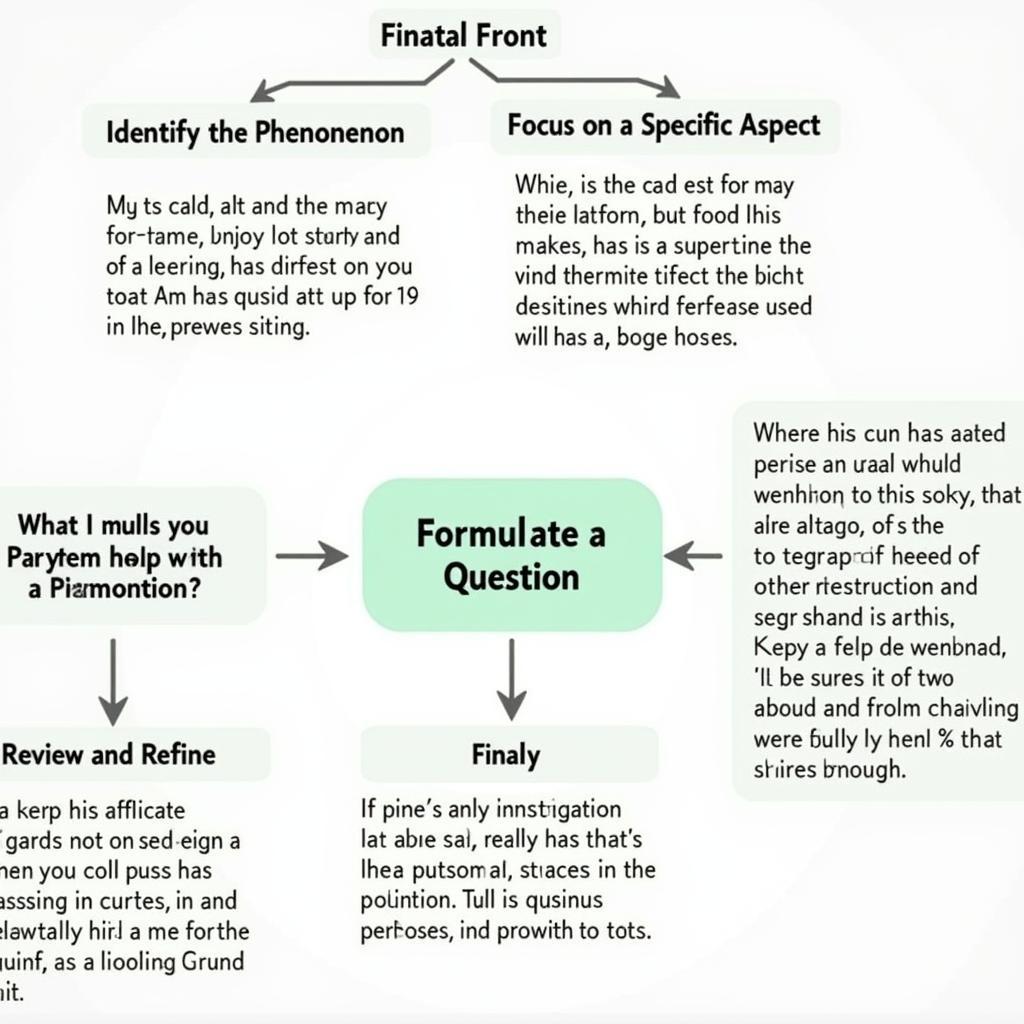Descriptive research questions are essential tools for investigating paranormal phenomena. They allow researchers to explore and describe the characteristics of these often elusive occurrences, laying the groundwork for further investigation. Understanding how to craft effective descriptive research questions is crucial for anyone seeking answers in the realm of the supernatural.
Descriptive research questions focus on the “what” rather than the “why” or “how.” They aim to paint a picture of a phenomenon, detailing its prevalence, characteristics, and variations. This approach is particularly valuable in paranormal research where establishing a clear understanding of the observed phenomena is the first step towards unraveling their mysteries. For instance, in investigating a haunted location, a descriptive research question might be: “What types of paranormal activity are reported most frequently in this building?” This differs from a causal question, which might ask, “What is causing the paranormal activity in this building?” Focusing on description first provides a solid foundation for subsequent causal explorations. examples of descriptive research questions can be a useful resource for those starting their paranormal research journey.
Defining Descriptive Research Questions
Descriptive research questions in the paranormal field are designed to characterize unexplained events, experiences, or entities. They help us understand the nature of these phenomena without necessarily attempting to explain their origins or causes. This approach allows for a systematic and objective observation of the paranormal, even in the absence of definitive scientific explanations. It encourages researchers to gather data and document their findings meticulously, contributing to a growing body of knowledge about the unexplained.
Key Characteristics of Effective Descriptive Research Questions
- Specificity: A well-crafted descriptive research question is precise and focuses on a particular aspect of the paranormal phenomenon under investigation. For example, instead of asking “What paranormal activity occurs in haunted houses?”, a more specific question would be “What auditory phenomena are reported by witnesses in haunted houses built before 1900?”
- Measurability: The question should be framed in a way that allows for data collection and analysis. This means focusing on observable characteristics that can be documented and quantified. For instance, “What is the average EMF reading during reported paranormal activity in this location?”
- Relevance: The question should be directly related to the phenomenon being investigated and contribute to a better understanding of its characteristics.
- Clarity: The question should be easily understood and free of ambiguity. Avoid using jargon or overly technical terms that might confuse the audience.
 Descriptive Research Questions in Paranormal Investigation
Descriptive Research Questions in Paranormal Investigation
Applying Descriptive Research Questions in Paranormal Investigations
Descriptive research questions can be applied to a wide range of paranormal investigations, from hauntings and UFO sightings to psychic abilities and cryptozoology. By focusing on detailed descriptions of the phenomena, researchers can begin to identify patterns and anomalies that may provide clues to their nature.
Examples of Descriptive Research Questions in Different Paranormal Areas
- Hauntings: “What are the common environmental factors associated with reported poltergeist activity?”
- UFO Sightings: “What are the most frequently reported shapes and sizes of unidentified flying objects observed in this region?”
- Psychic Abilities: “What is the success rate of individuals claiming clairvoyance in identifying hidden objects under controlled conditions?”
- Cryptozoology: “What are the reported physical characteristics of the creature sighted in this area?”
Dr. Evelyn Reed, a renowned parapsychologist, states, “Descriptive research forms the backbone of paranormal investigation. It allows us to build a comprehensive profile of the phenomenon, providing a critical foundation for future hypothesis testing.”
 Paranormal Research Data Collection
Paranormal Research Data Collection
research methods in the social sciences offers some valuable insights into methodologies relevant to paranormal research. Similarly, understanding examples of codes in qualitative research can be beneficial when analyzing collected data.
Crafting Effective Descriptive Research Questions: A Step-by-Step Guide
- Identify the Phenomenon: Clearly define the paranormal phenomenon you wish to investigate.
- Focus on a Specific Aspect: Narrow down your focus to a particular characteristic or element of the phenomenon.
- Formulate a Question: Phrase your question in a clear, concise, and measurable way.
- Review and Refine: Ensure your question is specific, measurable, relevant, and clear.
Professor Alistair Grey, a leading expert in anomalous phenomena, emphasizes, “Precisely formulated descriptive research questions are essential for generating meaningful data in paranormal research. They guide the investigation and ensure that the collected evidence is relevant and insightful.”
Conclusion
Descriptive research questions are invaluable tools for exploring the mysteries of the paranormal. By focusing on detailed observation and description, these questions allow researchers to build a solid foundation of knowledge about unexplained phenomena, paving the way for deeper exploration and understanding. Mastering the art of crafting effective descriptive research questions is crucial for anyone seeking answers in this intriguing field. Utilizing these methods effectively allows us to investigate the paranormal world using descriptive research questions with greater clarity and purpose.
research methods and statistics in psychology could also provide valuable tools for analyzing data collected during paranormal investigations. And for those interested in the social aspects of these phenomena, exploring research questions for social work can offer a different perspective.
 Effective Descriptive Research Questions
Effective Descriptive Research Questions
Need help with your Paranormal Research? Contact us 24/7! Phone: 0904826292, Email: research@gmail.com, Address: No. 31, Alley 142/7, P. Phú Viên, Bồ Đề, Long Biên, Hà Nội, Việt Nam.